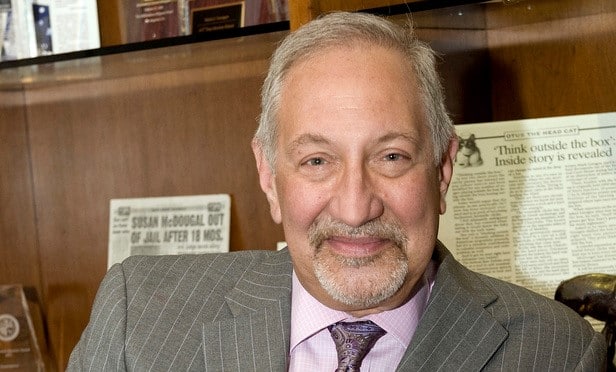NACPA spoke to Amy Morrison, co-founder and chief executive of the Music Sustainability Alliance, to gain some knowledge of the unique organization.
What is the Music Sustainability Alliance?
MSA, the music industry’s green association, is a nonprofit 501(c)(3) organization where the music industry, artists, and other stakeholders converge and collaborate to tackle the climate crisis and amplify the voice of music towards action.
Our mission is threefold, to:
- Unite the music industry, artists, and other stakeholders to tackle the climate crisis.
- Create impactful solutions that transform operations and influence culture through learning, innovation, and collaboration.
- Harness the power of convening and community to move the music industry toward sustainability and leverage its voice and platforms for maximum societal benefit.
To accomplish our mission, we bring together the entire music industry ecosystem, including venues, promoters, production vendors, agents, logistics providers, managers, record labels, streaming services, media, — and, of course, the artists themselves..

How did this get formed?
I’ve always been an environmental activist. When I got into the music business 35 years ago, I knew that one day I was going to bring these two things together. Over the years, I have done that in various ways, including producing benefit concerts, greening tour operations and bringing together stakeholders across business verticals to address mutual challenges and opportunities.
During the industry-wide pause of COVID-19, an increasing number of people reached out with questions about sustainability in the music business. People knew I had experience in this space and wanted to understand what was happening and how they could get involved. That led to conversations with my co-founder, Michael Martin, who has a long and storied career at the intersection of music, brands and causes. We realized there was no central organization connecting the dots on sustainability within the industry. We saw an opportunity to highlight the sustainability efforts already in motion, provide resources to help industry professionals take action without reinventing the wheel, and create a space for everyone to collaborate and learn.
MSA started with community calls — informal discussions with industry professionals — that quickly turned into a burgeoning community ready to take action. It was clear that there was a need for a powerful advocacy organization that could look at the issues at an industrywide basis, where none of us knows as much as all of us. That notion has become core to our mission.
When did you officially take a leading role?
In mid-2023, it became clear that MSA needed dedicated leadership to expand its impact. I made the decision after 23 years at AEG Presents/Concerts West to focus on MSA fulltime.
Our first significant action was an industrywide sustainability summit that took place on February 5, 2024, in Los Angeles, the day after the Grammys. Ironically, amid an atmospheric river that brought heavy rains to Los Angeles, nearly 200 people showed up. People stayed the whole day, and the cocktail party. That really proved to us that there was a hunger for a community of like-minded souls.
“Sustainability” can be vague. Can you get into specific?
Sustainability in music touches every part of the industry, from merch production and supply chains to transportation, music recording, and how fans engage with and consume music. Key areas of impact include such things as waste reduction and reuse, energy efficiency and clean power, sustainable food options, and carbon footprint tracking. Production teams can reduce emissions by shifting away from diesel generators to low-emission, renewable energy sources like battery power. On the food front, artists, venues, tours, and festivals can lower their environmental impact by embracing more plant-based catering and concessions. Measuring the industry’s carbon footprint provides a baseline for improvement, helping guide smarter decisions.
One example of progress is AEG’s reusable cup program, which started in Denver. Fans use the cups, return them to bins, and the cups get washed and reused, drastically reducing waste. Food production is a leading source of carbon emissions, and artists like Billie Eilish are taking the lead by working with venue concessionaires to offer more plant-based food options as well as incorporating them into tour catering. Many are also addressing food waste by donating leftovers to those in need. Coldplay donated 9,625 meals + 90kg of toiletries from tour catering to the unhoused and unsheltered and saw an 86% average return and re-use rate of LED wristbands.
What I love about these examples is that they don’t just reduce emissions and waste—they demonstrate what’s possible. Fans coming to shows and venues see reuse in action and have the opportunity to try plant-based foods, creating a ripple effect that extends beyond the industry itself.
Are you considered a consultant on these initiatives?
MSA doesn’t operate as a consultant but serves as a resource hub, research organization, and knowledge-sharing platform – essentially the music industry’s green association. We share best practices, provide research, and facilitate discussions and other learning opportunities. We’ve worked with Columbia University on studies and published white papers that identify and quantify the biggest opportunities for the industry to reduce its negative footprint and grow its positive footprint. We also run ‘The Green Room’ webinar series, covering topics like environmental regulations, waste reduction, and fan engagement. In February, we convened an online industry event focusing on the LA wildfires. It included climate experts, activists, artists and others and drew over 10,000 viewers via Zoom and Instagram Live.
In 2024, MSA launched three industry working groups focused on reporting and metrics, waste reduction, and clean energy. The alliance is also expanding its presence at sustainability events, including New York and Los Angeles Climate Weeks.

Where does your revenue come from?
MSA’s funding comes from our founding partners, corporate memberships, summit sponsorship, and donations. Our founding partners and sponsors include the top industry production companies, promoters, streamers, talent agencies, venues and management companies. We are rolling out an individual and small company membership program this spring. Everyone attending the summit this year gets a basic MSA membership, which includes access to our member directory so people can easily connect and collaborate.
Who is in the MSA? How many people are involved?
We are a small but mighty team. There is me, my co-founder Michael Martin, Kurt Langer, Joel Makower, David Koenig, Eleanor Anderson and Annie Farman.
What are some of the goals of MSA?
Right now, we’re focused on MSS 25, our annual summit, on April 15; finalizing this round of working group recommendations; and launching our membership program. Over the next 12 to 18 months, our goals include growing the working group program, producing monthly Green Room webinars, convening community calls, expanding research efforts, expanding our annual summit, and advancing standardized measurement practices. We also plan to grow our presence at key music events—conferences and festivals—by hosting meetups and introducing sustainability-focused programming.
Big picture, I see full membership across the industry and MSA as the go-to voice on sustainability in the music industry, providing best practices, research, science-based solutions, and real-world strategies. The goal is for sustainability to be woven into how the industry operates in impactful and measurable ways—embedded in day-to-day decisions, prioritized across all areas, and seen as essential to the future of live and recorded music.
But music’s influence goes beyond the industry—it shapes culture and drives real change. Artists, industry leaders, and fans all play important roles in making sustainability part of the conversation and the experience. We’re already seeing progress, from waste and energy to transportation and logistics to food and merch. . MSA aims to scale these solutions across the industry and turn big ideas into real action that reaches beyond music.
How can people learn more?
To stay in touch, sign up for our monthly newsletter on our website – musicsustainability.org – or email me at amy@musicsustainability.org.


